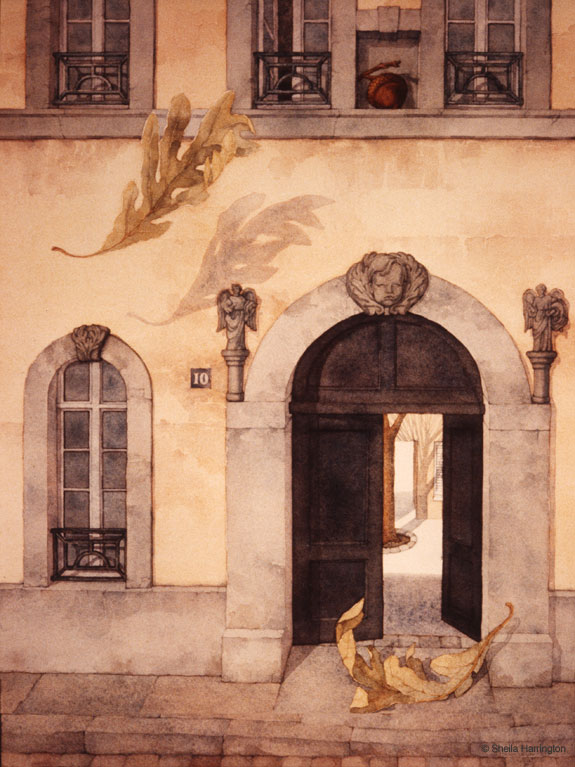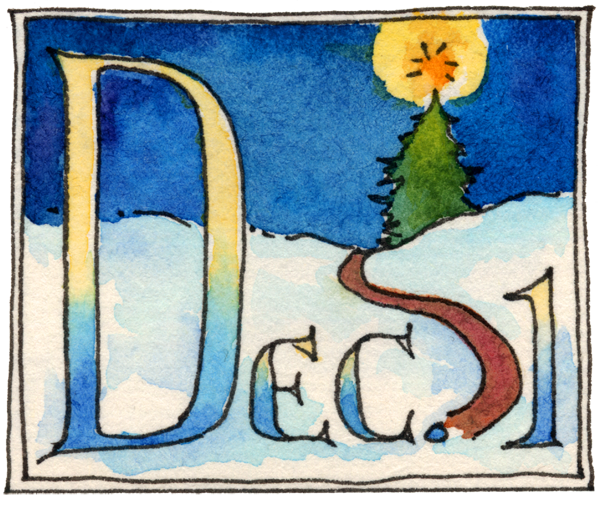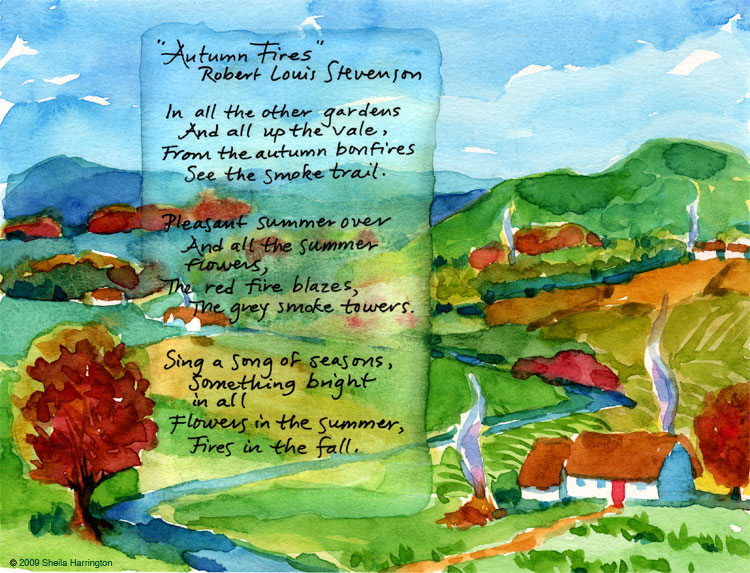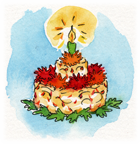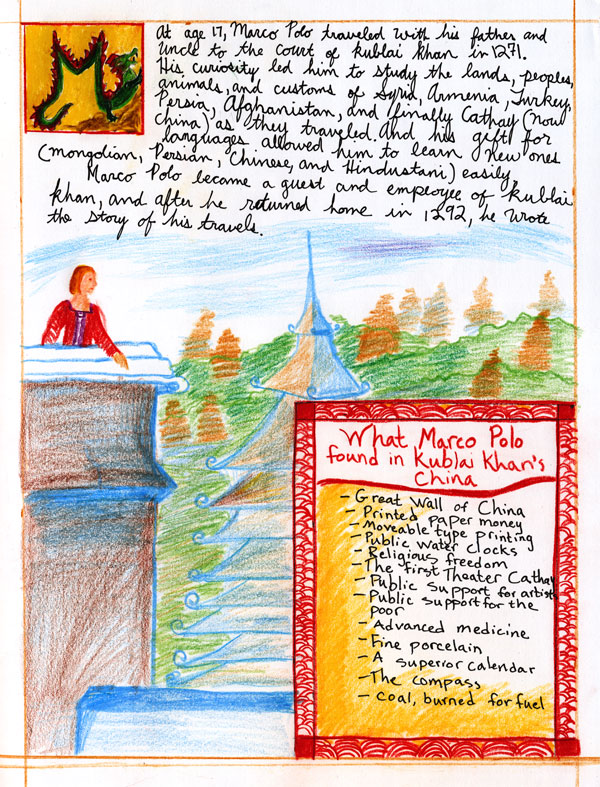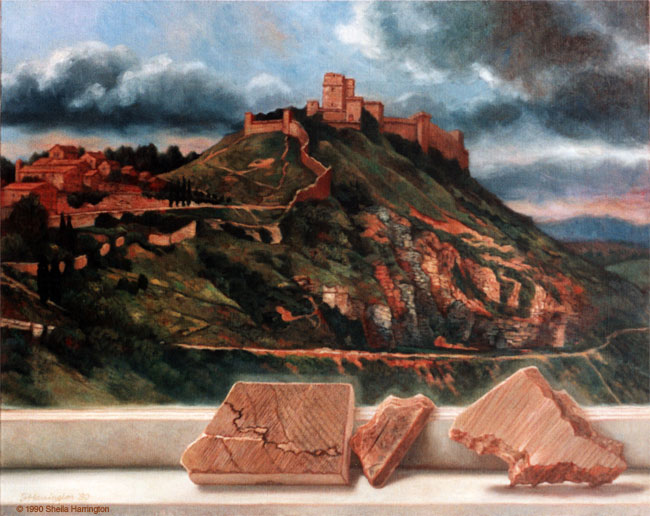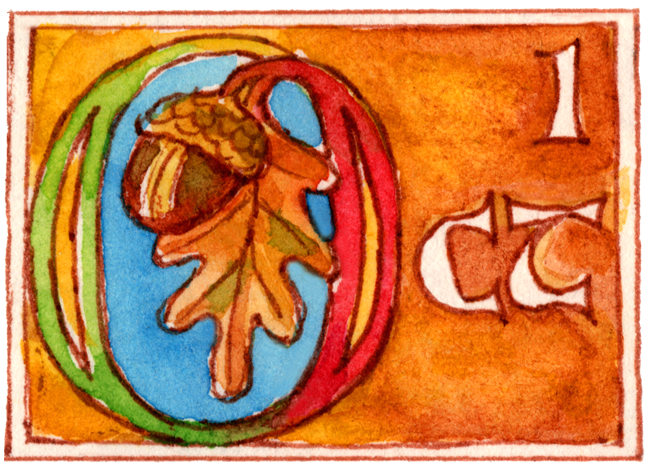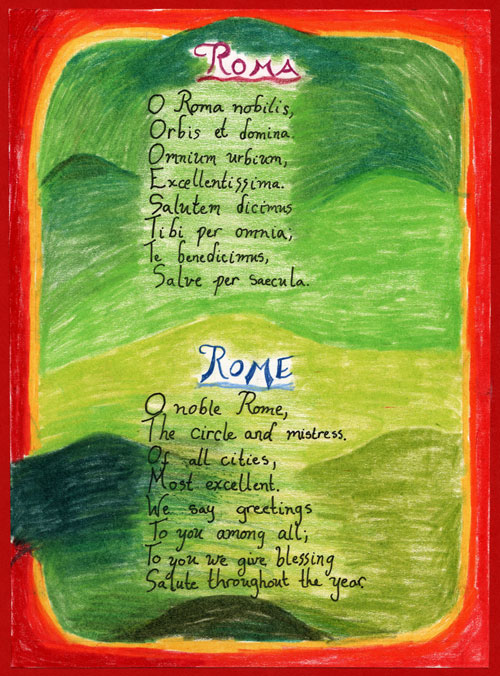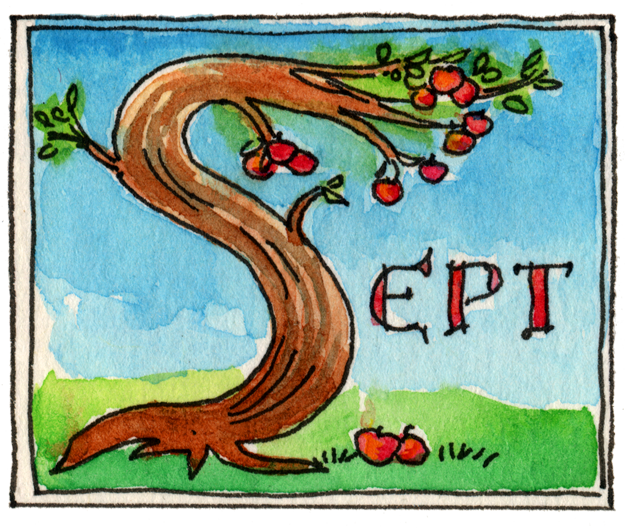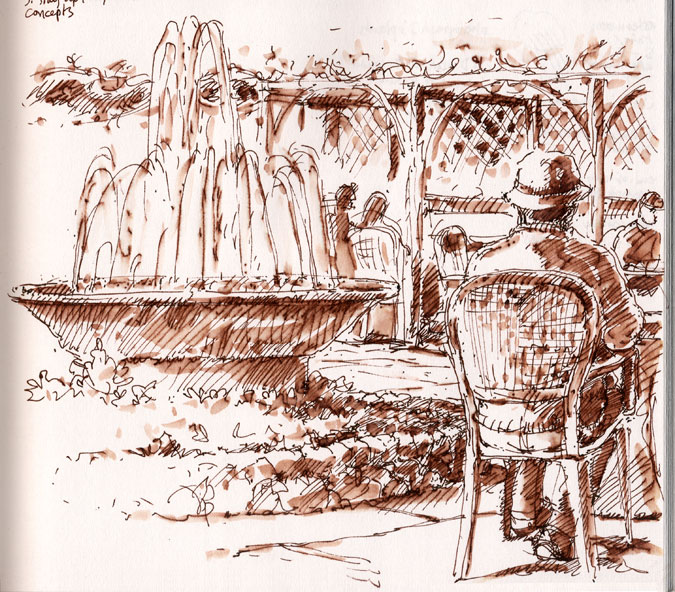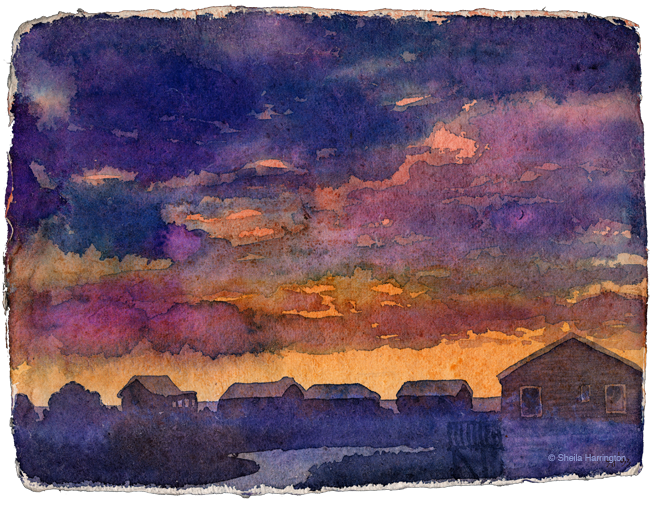The second Sunday of Advent falls on the birthday of Rainer Maria Rilke (1875-1926), and in celebration I post this seasonal poem in the original German, along with one of its numerous translations, and a painting. If you have a translation you prefer then please tell me about it.
For another Rilke poem, and a sketch, please see Holding up all this falling.
Herr: es ist Zeit. Der Sommer war sehr groß. Leg deinen Schatten auf die Sonnenuhren, und auf den Fluren laß die Winde los. Befiel den letzten Früchten voll zu sein; gib ihnen noch zwei südlichere Tage, dränge sie zur Vollendung hin und jage die letzte Süße in den schweren Wein. Wer jetzt kein Haus hat, baut sich keines mehr. Wer jetzt allein ist, wird Es lange bleiben, wird wachen, lesen, lange Briefe schreiben und wird in den Alleen hin und her unruhig wandern, wenn die Blätter treiben.—Rainer Maria Rilke (1902)
Day in Autumn
Lord: it is time. Great was the Summer’s feast. Now lay upon the sun-dials your shadow And on the meadows have the wind released. Command the last of fruits to round their shapes; Grant two more days of south for vines to carry, To their perfection thrust them on, and harry The final sweetness into the heavy grapes. Who has not built his house will not start now Who now is by himself will long be so, Be wakeful, read, write lengthy letters, go In vague disquiet pacing up and down Denuded lanes, with leaves adrift below.—Trans. Walter Arndt (1989)

